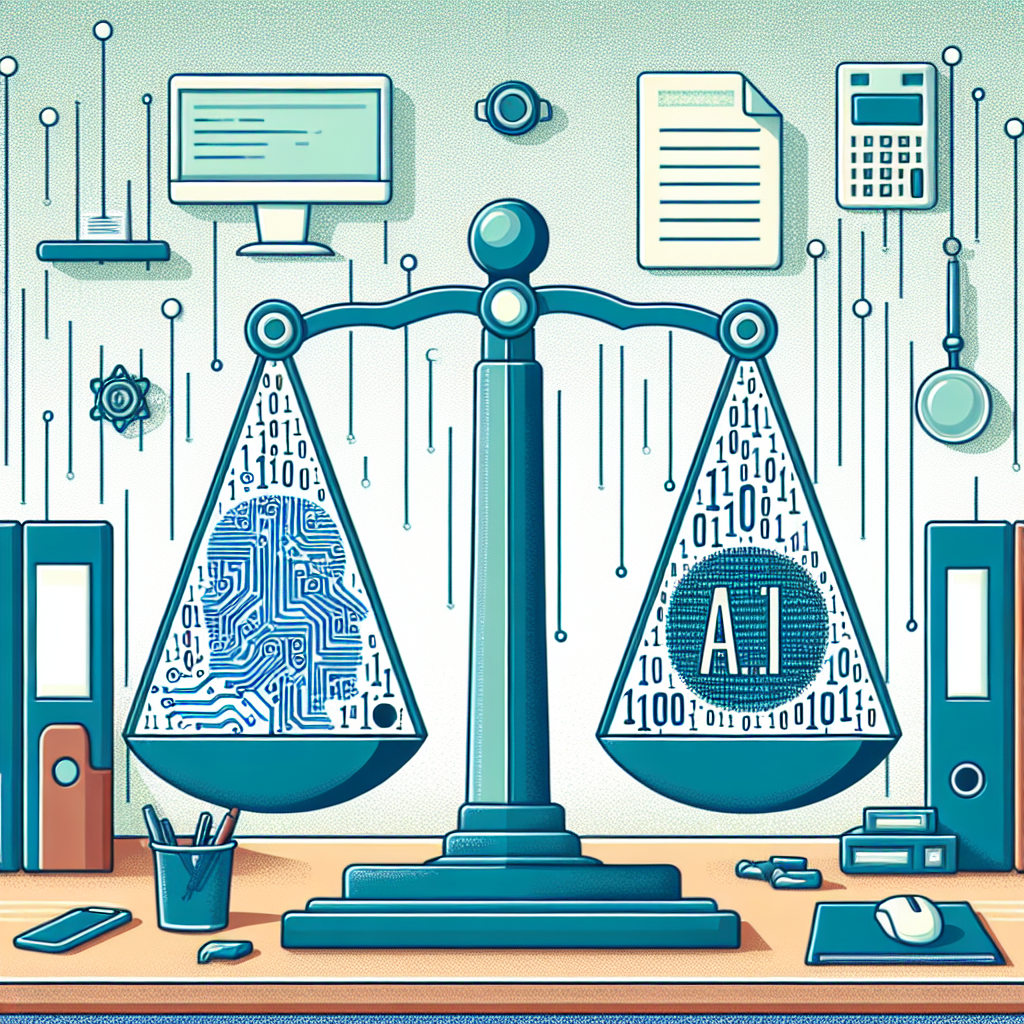Ethical guidelines for AI in human resources and recruitment have become increasingly important as companies rely more on artificial intelligence tools to streamline their hiring processes. While AI can provide many benefits in terms of efficiency and accuracy, there are also potential risks and ethical concerns that must be addressed to ensure fair and equitable practices.
One of the main ethical considerations when using AI in human resources is bias. AI algorithms can inadvertently perpetuate biases that exist in society, such as racial or gender bias, if they are trained on biased data. This can lead to discriminatory outcomes in the recruitment process, which can have serious consequences for individuals who are unfairly excluded from job opportunities.
To address this issue, companies should ensure that their AI tools are designed and tested to mitigate bias. This can be done through various measures, such as using diverse training data, regularly auditing the algorithms for bias, and providing transparency into how the algorithms make decisions. Companies should also have processes in place to review and address any potential biases that are identified.
Another ethical concern with AI in human resources is privacy. AI tools often rely on large amounts of personal data to make hiring decisions, such as resumes, interviews, and performance evaluations. Companies must ensure that they are collecting and using this data in a responsible and transparent manner, in compliance with data protection regulations such as the General Data Protection Regulation (GDPR).
To protect privacy, companies should only collect data that is necessary for the hiring process and obtain consent from candidates before using their personal information. They should also implement strong security measures to safeguard the data from unauthorized access or misuse. Additionally, companies should be transparent with candidates about how their data is being used and give them the opportunity to opt out of AI-driven processes if they choose.
Transparency and accountability are key principles in ensuring ethical AI in human resources. Companies should be transparent with candidates about the use of AI in the recruitment process, including how the algorithms work and what criteria they are using to make decisions. They should also provide candidates with avenues for recourse if they believe they have been unfairly treated by AI tools.
Accountability is also important, as companies should take responsibility for the decisions made by their AI tools and be prepared to explain and justify those decisions if necessary. This includes having mechanisms in place to review and challenge decisions made by AI, as well as providing avenues for candidates to appeal if they feel they have been treated unfairly.
In addition to bias, privacy, transparency, and accountability, there are other ethical considerations to keep in mind when using AI in human resources. For example, companies should consider the implications of automation on job displacement and the potential impact on the workforce. They should also be mindful of the ethical implications of using AI to assess employee performance or make decisions about promotions or layoffs.
Overall, ethical guidelines for AI in human resources and recruitment should prioritize fairness, transparency, and accountability. By addressing bias, protecting privacy, and being transparent and accountable in their use of AI tools, companies can ensure that their recruitment processes are ethical and equitable for all candidates.
FAQs:
1. How can companies ensure that their AI tools are not biased in the recruitment process?
Companies can ensure that their AI tools are not biased by using diverse training data, regularly auditing the algorithms for bias, and providing transparency into how the algorithms make decisions. Companies should also have processes in place to review and address any potential biases that are identified.
2. What steps can companies take to protect privacy when using AI in human resources?
Companies can protect privacy by only collecting data that is necessary for the hiring process, obtaining consent from candidates before using their personal information, implementing strong security measures to safeguard the data, and being transparent with candidates about how their data is being used.
3. How can companies be transparent and accountable in their use of AI in human resources?
Companies can be transparent by providing candidates with information about the use of AI in the recruitment process, including how the algorithms work and what criteria they are using to make decisions. They can be accountable by taking responsibility for the decisions made by their AI tools and providing avenues for candidates to challenge those decisions if necessary.
4. What are some other ethical considerations to keep in mind when using AI in human resources?
Other ethical considerations to keep in mind when using AI in human resources include the implications of automation on job displacement, the ethical implications of using AI to assess employee performance or make decisions about promotions or layoffs, and the potential impact on the workforce. Companies should consider these factors when implementing AI tools in their recruitment processes.

